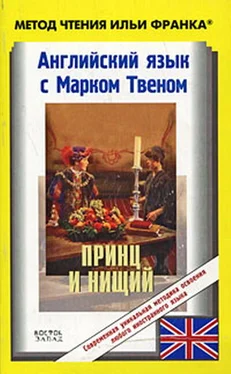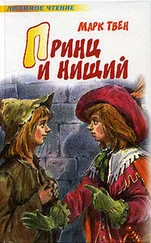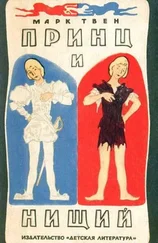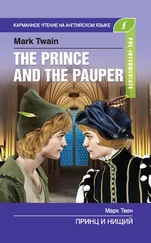raillery [`reılərı], swordsmanship [`so:dzmənSıp], precision [prı`sıZ(ə)n]
ONCE more 'King Foo-foo the First' was roving with the tramps and outlaws, a butt for their coarse jests and dull-witted railleries, and sometimes the victim of small spitefulnesses at the hands of Canty and Hugo when the Ruffler's back was turned. None but Canty and Hugo really disliked him. Some of the others liked him, and all admired his pluck and spirit. During two or three days, Hugo, in whose ward and charge the king was, did what he covertly could to make the boy uncomfortable; and at night, during the customary orgies, he amused the company by putting small indignities upon him — always as if by accident. Twice he stepped upon the king's toes — accidentally — and the king, as became his royalty, was contemptuously unconscious of it and indifferent to it; but the third time Hugo entertained himself in that way, the king felled him to the ground with a cudgel, to the prodigious delight of the tribe. Hugo, consumed with anger and shame, sprang up, seized a cudgel, and came at his small adversary in a fury. Instantly a ring was formed around the gladiators, and the betting and cheering began. But poor Hugo stood no chance whatever. His frantic and lubberly 'prentice-work found but a poor market for itself when pitted against an arm which had been trained by the first masters of Europe in single-stick, quarter-staff, and every art and trick of swordsmanship. The little king stood, alert but at graceful ease, and caught and turned aside the thick rain of blows with a facility and precision which set the motley onlookers wild with admiration; and every now and then, when his practised eye detected an opening, and a lightning-swift rap upon Hugo's head followed as a result, the storm of cheers and laughter that swept the place was something wonderful to hear. At the end of fifteen minutes, Hugo, all battered, bruised, and the target for a pitiless bombardment of ridicule, slunk from the field; and the unscathed hero of the fight was seized and borne aloft upon the shoulders of the joyous rabble to the place of honor beside the Ruffler, where with vast ceremony he was crowned King of the Game-Cocks; his meaner title being at the same time solemnly canceled and annulled, and a decree of banishment from the gang pronounced against any who should henceforth utter it.
All attempts to make the king serviceable to the troop had failed (все попытки сделать короля полезным для банды провалились). He had stubbornly refused to act (он упорно отказывался участвовать); moreover, he was always trying to escape (более того, он постоянно пытался сбежать). He had been thrust into an unwatched kitchen (он был впущен в неохраняемую кухню; to thrust — толкать, засовывать), the first day of his return (в первый день его возвращения); he not only came forth empty-handed (он не только вышел с пустыми руками; forth — наружу; empty — пустой; hand — рука), but tried to rouse the housemates (но попытался разбудить соседей). He was sent out with a tinker (он был послан с лудильщиком; to send — посылать) to help him at his work (чтобы помочь ему в его работе); he would not work (он не работал); moreover, he threatened the tinker with his own soldering-iron (более того, он угрожал лудильщику его собственным паяльным прутом); and finally both Hugo and the tinker found their hands full with the mere matter (и наконец и Хьюго, и лудильщик нашли свои руки полными единственного дела = все, что им приходилось делать, так это) of keeping him from getting away (удерживать его от побега; to keep — держать, хранить; to get away — удирать). He delivered the thunders of his royalty (он метал громы своего царственного сана; to deliver — доставлять, исторгать) upon the heads of all who hampered his liberties (на головы всех, кто стеснял его свободы) or tried to force him to service (или пытался принудить его служить). He was sent out (он бывал выпущен; to send — посылать), in Hugo's charge (под присмотром Хьюго), in company with a slatternly woman and a diseased baby (в компании неряшливой женщины и больного младенца), to beg (попрошайничать); but the result was not encouraging (но результат был не обнадеживающий) — he declined to plead for the mendicants (он уклонялся от того, чтобы молить за попрошаек), or be a party to their cause in any way (или быть участником в их деле каким бы то ни было образом).
Thus several days went by (так несколько дней прошло; to go by — проходить мимо); and the miseries of this tramping life (невзгоды этой бродячей жизни), and the weariness and sordidness and meanness and vulgarity of it (и утомительность, и убожество, и низменность, и пошлость ее), became gradually and steadily so intolerable to the captive (становилась постепенно и неуклонно так невыносима для маленького пленника) that he began at last to feel (что он начал наконец чувствовать; to begin — начинать) that his release from the hermit's knife (что его избавление от ножа отшельника) must prove only a temporary respite from death, at best (должно быть, оказалось лишь временной отсрочкой смерти, в лучшем случае; must — быть должным; to prove — доказывать, оказываться).
But at night, in his dreams (но ночью, в его снах), these things were forgotten (эти вещи бывали забыты; to forget — забывать), and he was on his throne (и он был на своем троне), and master again (и властелином снова). This, of course, intensified the sufferings of the awakening (это, конечно, усиливало страдания пробуждения) — so the mortifications of each succeeding morning (так что горести каждого следующего утра) of the few that passed between his return to bondage and the combat with Hugo (из тех нескольких = дней, что прошли между его возвращением в рабство и дракой: «битвой» с Хьюго), grew bitterer (становились горше; to grow — расти, становиться), and harder and harder to bear (и тяжелее и тяжелее, чтобы переносить = их стало тяжелее переносить).
The morning after that combat (утром после той драки), Hugo got up with a heart filled with vengeful purposes against the king (Хьюго встал с мстительными намерениями против короля; to get up — вставать). He had two plans in particular (он имел два плана, в частности). One was to inflict upon the lad what would be (один был — нанести мальчику то, что было бы), to his proud spirit and 'imagined' royalty (для его гордого духа и «воображаемому» королевскому сану), a peculiar humiliation (особенным унижением); and if he failed to accomplish this (а если бы он не смог совершить это; to fail — не смочь, потерпеть неудачу), his other plan was to put a crime of some kind upon the king (его другой план был — положить = «повесить» преступление какого-либо рода на короля) and then betray him into the implacable clutches of the law (а затем предать его в неумолимые лапы закона; clutch — сжатие; захват; clutches — когти, лапы).
Читать дальше
Конец ознакомительного отрывка
Купить книгу




![Марк Твен - Принц и нищий [Издание 1941 г.]](/books/148799/mark-tven-princ-i-nichij-izdanie-1941-g-thumb.webp)







